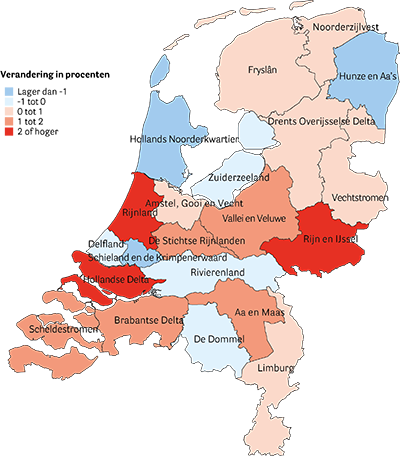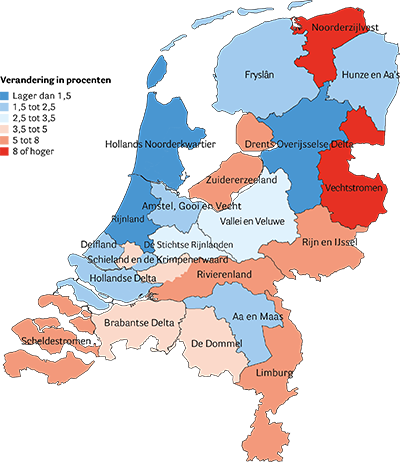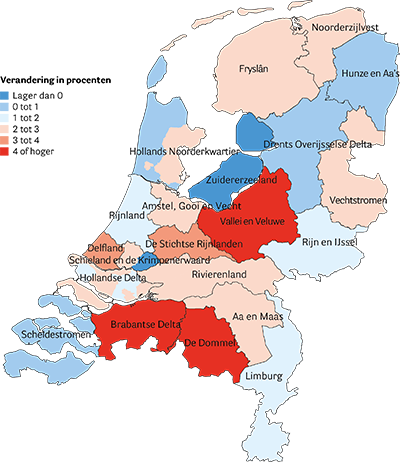Large regional differences in development of water board tax
The development of the water board tax varies strongly per water board. This is the conclusion of the University of Groningen’s Centre for Research of Local Government Economics (COELO). COELO researched the development of the tax rates of water boards across the last management period (2015-2019), with a view to the approaching water board management elections on 20 March.
These figures are published in the ‘Developments in water authority levies 2015-2019’ report, compiled by COELO. The full report, containing figures for each separate water authority, can be found on www.coelo.nl.

Pollution levy
The pollution levy is a tax paid by households and companies alike. In 2019, a multiperson household will pay an average of €149. This is €20 less than in 2015.

Water board levy
All households pay a water board levy. The average amount due in 2019 is €88.

More information
- Contact: dr. Corine Hoeben, COELO researcher, tel.: 050 363 3766, e-mail: coelo rug.nl
- The full publication Ontwikkeling waterschapsheffingen 2015-2019, COELO, Groningen is available on www.coelo.nl
More news
-
09 December 2025
Are robots the solution?
-
10 November 2025
Decentralization of youth care
